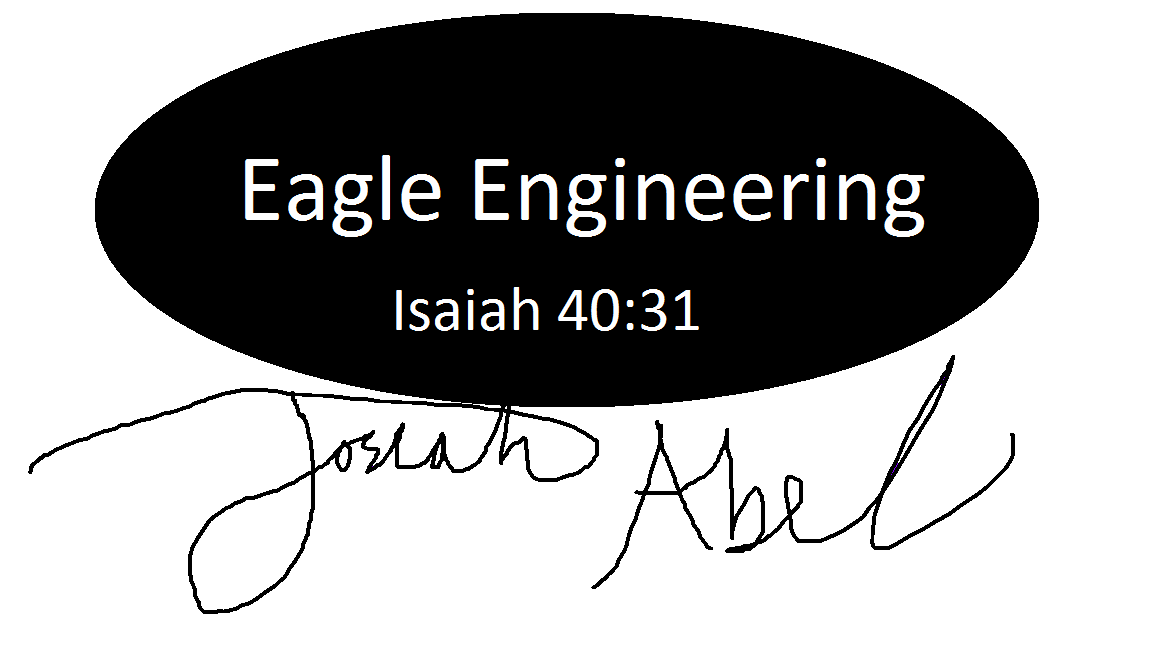

JOSIAH D. ABEL'S DIGITAL PORTFOLIO
ELECTRICAL ENGINEERING TECHNOLOGY
IVY TECH COMMUNITY COLLEGE, FORT WAYNE INDIANA
| Course Name | Course Description |
| IVYT 101 | Overview of skills and strategies necessary to reach their educational, career, and life objectives. Topics include time management, study skills, learning styles, campus and community resources, critical thinking, utilization of technology, career skills, and diversity in society. |
| COMM 101 | Fundamentals of public speaking. Focused on developing skills in: finding topics, outlines for speech, presentation development, posture and body language, and addressing the public. Topics include: demonstrative speech, informative speech, augumentative speech and persuasive speech. |
| PHYS 101 | Introduces the basic concepts of mechanics, including force and torque, linear and rotational motion, work, energy and power, fluids, and the physics of heat. |
| PHYS 102 | Introduces the physics of light, periodic and wave motion, electricity and magnetism, and concepts of modern and current physics. |
| METC 111 | Studies applied mechanics dealing with bodies at rest without the use of calculus. Covers units, vectors, forces, equilibrium, moments and couples, planar force systems, distributed forces, analysis of structures, and friction. |
| ENGR 116 | This is a fundamental course which introduces students to geometric modeling for visualization and communication. Modeling construction techniques to produce computer models for graphic visualization and communication will be explained and used. |
| EECT 111 | Voltage, current, resistance, Ohm’s law, Kirchhoff’s laws, resistance combinations, and Thevenin’s, Norton’s, and superposition theorems are studied. DC and AC circuits are studied and utilized with basic AC terminology described. The performance of ideal transformers, capacitors and inductors, and first order RLC circuits are investigated. Fundamental analog electronic circuits are utilized in the lecture and laboratory to enhance the understanding of basic laws and theorems. |
| EECT 121 | Capacitors, inductors, switching circuits, transformers, rectifiers, linear regulators, dependent sources, operational amplifiers, BJT and MOSFET based small signal amplifiers, and waveform generation are studied. Circuit fundamentals such as Kirchhoff’s laws are utilized in analysis and design circuits. Computer simulation is used. |
| EECT 112 | Introduces basic gate and flip-flop logic devices and their application in combinational and sequential digital circuits. Topics include decoders, displays, encoders, multiplexers, demultiplexers, registers, and counters. Logic circuit analysis, implementation of circuits using standard IC chips or programmable logic devices, circuit testing and troubleshooting are emphasized. |
| EECT 122 | This course continues the study of combinational and sequential digital applications. The input and output characteristics of the various common logic families and the appropriate signal conditioning techniques for on/off power interfacing are discussed. Also stressed are standard logic function blocks, digital and analog signal interfacing techniques, and memory devices. |

